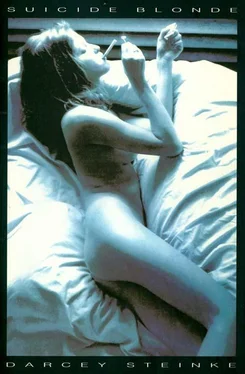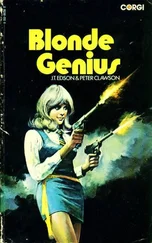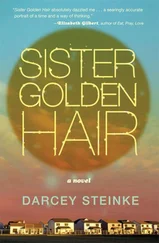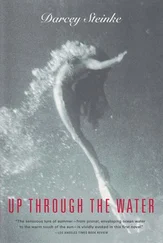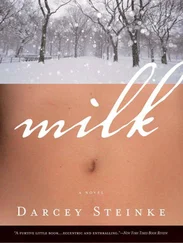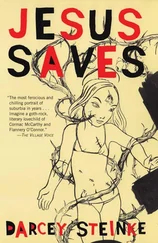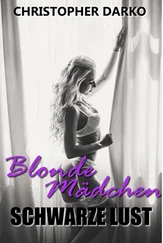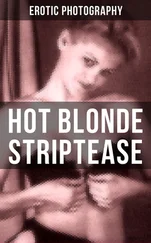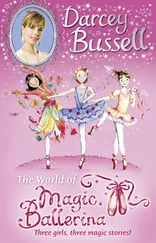I skimmed every inch of the twisted sheets for sperm stains, worried that Bell had already taken a lover. Was it true that a man who really loved you would wait before he took new lovers? Or would the more desperate man seek a new lover immediately? Lately, I didn't trust the typical maxims of love, I know I sometimes loved men I cheated on more than ones I'd been true to. And besides, what did it mean that I didn't want him sleeping with anyone. It seemed territorial, had more to do with my will than any feeling for him. But that's the way it was with Bell from the beginning. It was his old girlfriend that started my obsession. I decided I wanted him once I'd heard about her: that she was five years older, had bleached blond hair, could speak French, that her father beat her and probably, most importantly, that she still wanted Bell. It was around these ridiculous facts my obsession with him flowered. But that wasn't really true, because when I thought of his lovely genitals, his narrow face, how he smiled with pleasure when I talked, how his body was warm, how it seemed to love me, I knew that I loved Bell, not only the mystery that surrounded him.
I spotted Kevin's wedding invitation lying under the table and crawled out of the closet. The envelope was worn fuzzy along the opening. I found a picture of Bell I liked and stuck both into my cardboard box. The two boxes and a green trash bag were all I had. It pleased me, I was like a monk or a disciple, I didn't need but a few bits of clothing. But staring at the sheen of the plastic I felt miserable. I was twenty-nine, and if I accumulated things at the same rate until I was ninety I would only have six boxes and three trash bags. But what did it matter? I wanted to stop thinking that accumulating things — people, houses, cars — could comfort or save me. But the thought of having nothing scared me, it was too much like being dead.
I dragged the bag to the lobby, then carried down the boxes, thought of sliding the key under the door, but decided to keep it. I might feel like spying on Bell or things could get desperate and I might need to sell my books or my radio. It was damp on the front steps. I sat there in a stupor trying to decide if I should flag a yellow cab or go back up and call the gypsy car service.
A cab came around the corner and I stood, motioned for it to stop. The driver pulled over, he was a congenial Arab who helped me load my things into the trunk. In the shadow of the cab I could see the I.D. card with his photo and his name — Amud. His smile was well practiced as he asked about the framed photo I carried on my lap.
“It's my mother,” I said. “She was Miss America and later became a doctor.” The cabbie looked at me through the rearview mirror, first with lifted eyebrows in an expression of sudden interest. But when he saw how my mouth was loose from drinking and the crazy glaze covering my eyes he hunched his shoulders and drove faster. I often lied about my mother, as if saying what she might have been could somehow help her. Bolstering my mother was like pretending your boyfriend loved you. I leaned my head against the window frame, letting the cool air dry the perspiration on my face. This upset the cabbie.
“Your father, he helps you?” The cabbie turned toward me very slowly, trying to see if he could sense the refinement that was usually under the hippie clothes of young San Francisco women.
“I'm on my own,” I said. This seemed to bother him. He pressed the gas, shook his head.
“A girl should not be like you are.” I wanted to answer but couldn't think of anything to say, and the cabbie didn't look at me again. He turned on the radio to a channel with scratchy Arabian music and drove anxiously, revving the engine and edging forward at the lights. At Madison's he helped me unload my stuff, shaking the trash bag to see if I was crazy enough to move garbage. He took my money and drove off toward Market Street.
Upstairs I could tell Madison had been there. She had left a portable TV and some sprayed carnations in a milky vase. The flowers were ugly and when I turned on the TV there was only aggressive static like the TV sets at Carmen's. These things frightened me and made me wonder if Madison had really meant to make me feel welcome.
I placed my grandfather's chest on the TV, tacked my Kandinsky postcards over the nightstand, draped a scarf over the headboard and leaned my mother's photo against the wall. It's amazing how a well-placed scarf and a photograph can transform a cement-block hotel room or a studio like this from any place into some place familiar. I dumped out the trash bag, folded my clothes into the drawers. The room still seemed creepy with the fake wood dresser and the metal institutional bed. Even the cubist poster was angular and soulless like a machine. There were distant sounds of activity in the building. It conjured up the last person who lived here, a little man with bad teeth who ate sardines and read cheap pornography. He had a heart attack in the tub jacking off. “There is nothing so lovely,” he thought, “as a very young girl.”
I crushed the boxes with my foot and stored them in the closet, certain this was only transitional. Madison's closet was spectacular, like a rack of costumes in an actor's dressing room. There were beads and belts — one nail alone for crosses and rosaries. There were no current-style clothes, which made me wonder if Madison might be older than I thought or maybe ageless like a vampire. I fingered the rich wine-colored velvet, smooth white satin, her colored vinyl, decided to try some on. First a sleeveless mini-dress. When I stepped into my reflection I thought I was my mother. This was the style I remembered her in, or maybe it was this scenario, because I used to go through her clothes, smell her perfumed bras and slips — lie on her bed thinking of her body with my father's. But I looked more like Madison than my mother and I thought how malleable women are, with clothes they can look like virgins or whores or housewives. Their earrings give information, hemlines speak, eye shadows imply. I remember how Bell sometimes ridiculed my big sweaters and jeans, said I looked like a student. He'd point out women he thought were fashionable, usually ones in well-tailored black clothes. Sometimes I wanted new clothes, but when I stepped into little gray dressing rooms with the hooks on one side and mirrors on the other, the store's fluorescent light blaring underneath the door, I felt vulnerable and stupid and it was impossible to decide on anything.
There was a scrap of newsprint with Madison's handwriting scrawled all over in the dress pocket. I wanted to read it, but heard the door rattle and a key in the dead bolt. Madison came in carrying a tube of toothpaste and a package of toilet paper. She was startled to see me in her dress but didn't say anything. Instead she went into the bathroom and ran water to brush her teeth. I quickly pulled the dress off, turned to find my clothes on the bed.
“Nice butt,” she said. “You could make a lot of money with a butt like that.” Madison laughed, flopped down on the bed, watched me pull up my jeans. “What's your story?” Madison asked.
“I'm just a girl like any other.”
Madison smiled. I could see I pleased her and I wanted deeply to do so again.
“Have you ever had an abortion?”
“Yeah,” I said, “once in college.” It seemed a strange thing for her to ask me. So quickly she reduced people to two things, their most violent experiences and their sexual desires.
“Sobering, ain't it?” she said, scanning the things I put up around the room. She fingered the blue silk scarf.
“Where are you from?” I asked.
She looked at me to show how easily I slipped into formalities. “Carson City. Aren't you going to ask me what my daddy does?” She smiled. “My mother said he was a cowboy but she's a liar. Another time she pointed to the guitarist on a video and said that was my father. My second stepfather moved us around a lot, crazy places like Spokane and some place in Mexico. He sold things: tanning beds, fire alarms. I've lost track of them now and we will never find each other.”
Читать дальше
